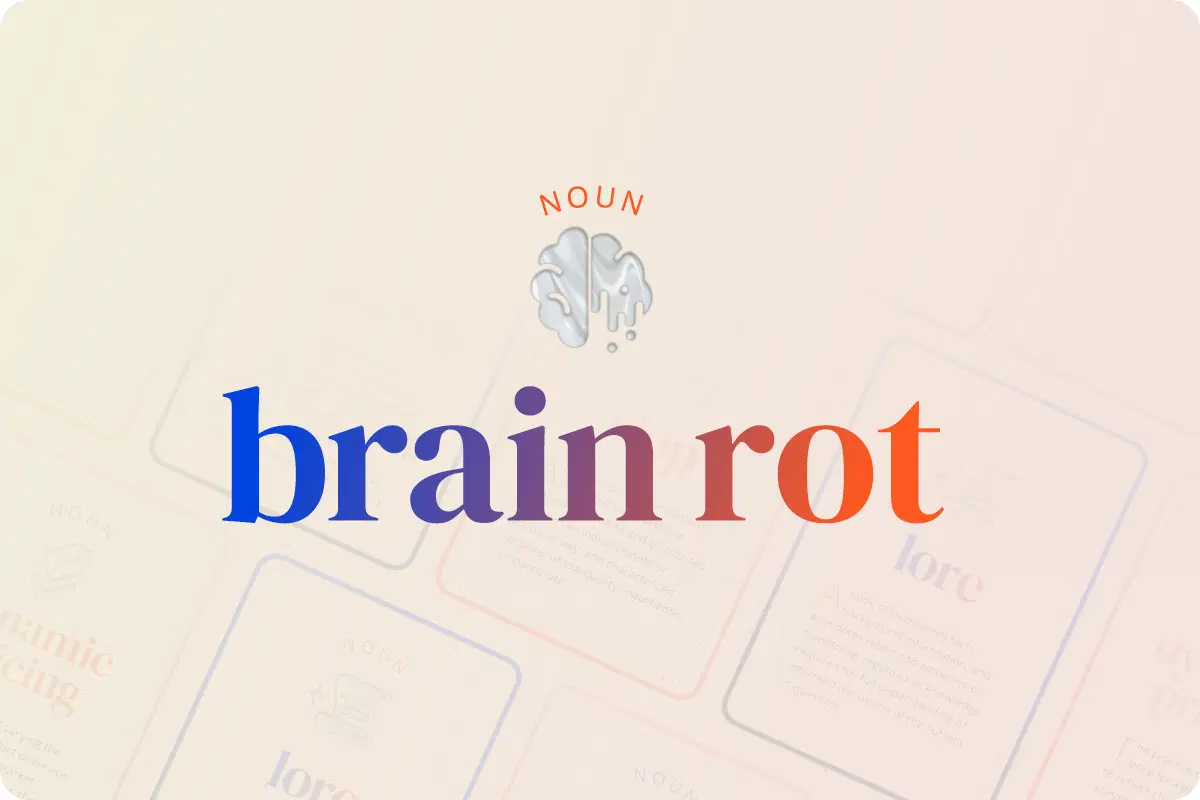In a year dominated by conversations about mental health and online culture, ‘brain rot’ has been crowned Oxford Word of the Year 2024.
The announcement, following a public vote involving more than 37,000 participants, underscores growing concerns about the impact of digital consumption on our minds.
Oxford University Press (OUP) explained that ‘brain rot’ saw a 230% surge in usage over the past year, cementing its place as a term that resonates deeply with today’s digital society.
But why did this term—originally coined in 1854 by Henry David Thoreau—take on such prominence in 2024?
What Does ‘Brain Rot’ Mean?

According to OUP, ‘brain rot’ refers to the “supposed deterioration of a person’s mental or intellectual state, especially as a result of consuming trivial or unchallenging online content.”
In simpler terms, it’s a witty yet pointed way of describing how endless scrolling through low-quality memes, TikTok trends, and clickbait videos might leave our brains feeling, well, a little mushy.
From TikTok’s Gen Z humour to Skibidi Toilet and Ohio memes, ‘brain rot’ has also evolved into an online cultural phenomenon.
It captures both the cause—the absurd, nonsensical, and sometimes hilarious content we consume—and its effect on our mental state.
The Rise of ‘Brain Rot’ in the Digital Era
While the phrase originated in Thoreau’s Walden, where it was tied to a simpler lifestyle free of distractions, it has taken on a starkly different meaning in the digital age.
Today, the term is heavily associated with the rapid-fire consumption of low-value online content.
OUP highlighted TikTok as a platform where ‘brain rot’ gained significant traction, particularly among Gen Z and Gen Alpha.
The term is often used humorously or self-deprecatingly, with users joking about binge-watching nonsensical content like Skibidi Toilet—a viral video series featuring humanoid toilets—or participating in Ohio memes, which poke fun at bizarre or embarrassing scenarios.
OUP’s decision to crown ‘brain rot’ as the Word of the Year highlights its duality—it’s both a critique of our overindulgence in trivial content and a humorous embrace of our online habits.
As OUP notes, “This term has grown from online humour into a lens through which we examine our increasingly digital lives.”
Could ‘brain rot’ be a call to balance our love for internet culture with mindfulness about its effects?
Let us know your thoughts—does the Word of the Year make you chuckle, or does it hit a little too close to home?
READ ALSO:



